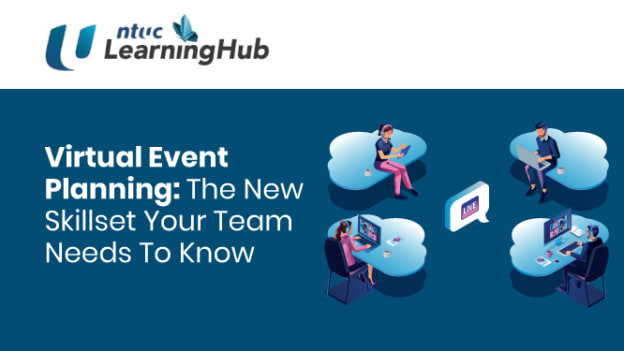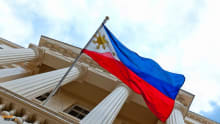Virtual Event Planning: The New Skillset Your Team Needs To Know

Today, some of the best events are virtual. From business conferences to industry roadshows, from concerts to pop culture conventions, the events industry has gone online. And as virtual events become increasingly widespread and sophisticated, audience expectations are rising as well.
The things that make a great virtual event are a bit different from the factors that make a physical event successful, though. It's a new (online) world, and even though the content of an event might remain the same, the format and delivery require a whole new skillset to pull off well. What are some of the things to keep in mind?
Virtual project management 101
The planning process of an event is critical, but in today's pandemic-wary workplace where people are either working from home, or need to follow safe distancing measures in the office, planning and project management become trickier than usual.
Many cloud-based productivity and collaboration tools are available, of course. Using these requires some preparation: executives and team leaders will first have to decide which tools are most suitable for their requirements, and then get them implemented on the business's existing systems.
Next, there is the technology adoption curve to manage. Teams will have to be trained on the use of the tools. So will managers and executives. Managers in particular will need to pick up the techniques involved in leading and managing their teams remotely. They will have to learn virtual collaboration skills, productivity skills specific to the online environment, and even how to measure their team's productivity when online—without having to resort to watching them through their webcams all day!
The event itself: technical skills and hosting skills
When event attendees cannot visit a venue in person to network, participate, or view exhibits, event organisers must turn to high quality audiovisual technology and comprehensive event platforms. Collaboration tools are easily available; but again, considerable skill is required to make the best use of them.
Team members will need to have basic technical skills for managing the event platform, to field queries that come via online messaging, to attend quickly to any unexpected hiccups—and to do all this remotely.
Meanwhile, other team members will have to be the human face of the event. They will need to host and moderate, to give opening and closing notes, to act as the emcee the way they would for a physical event—but online. Interpersonal approaches now have to be tailored to the online and hybrid environment; personal presentation skills work differently through the medium of webcam and screen, than they do when meeting someone face to face. They will have to build their personal brand and professional image in entirely new ways, leveraging not just traditional media platforms but also the new tools that have become so important today.
In other words, all the existing skills and capabilities people have developed will remain applicable--but they must be upgraded for the virtual event setting.
The post-event post-mortem
Finally, how well did the event do? A virtual event has to be analysed just as a physical event would be. But a virtual event will generate far more data than a physical event, simply because the platform allows closer and more detailed tracking of event attendees' interactions with the various sessions, exhibits, and features.
Such a post-mortem requires at least basic data analytics skills: an understanding of fundamental analytics concepts and how to apply them, and an awareness of the tools available and how to use those. For example, once your event platform has gathered all the data, you must know how to import it into your data analysis tool; you must know how to filter and shape the data, how to sort it, and how to make sense of it.
And analytics don’t end there. The team must know how to visualise the data in a way that is understandable to others, and then to link the findings to trends and opportunities: how are event attendees behaving, what is doing well, what needs to be improved? They, and the executives who finally receive their report, will need the skills to turn this data into strategy: to use the findings to make the event bigger and better.
Make the time for teams to upskill
Upskilling your event teams does not need to be a time-consuming or costly effort. Today, the basics of the most important and relevant skills can be acquired through time-efficient programmes, and subsidies are available to help businesses upgrade their talent pool.
Furthermore, this is a good time to upskill. The economy is slowly adapting to the new normal, and businesses can still get a head start—they can make use of this time and draw on government assistance to make the necessary changes in preparation for economic recovery.
Virtual events will remain as an attractive alternative for organisers, exhibitors, and attendees alike. Already, advantages are visible in their cost and reach. And with the right skills available, businesses will be able to find new ways of capitalising on the virtual format, to create opportunities and turn them into even better performance.
Get in touch to learn about this skills bundle offered by NTUC LearningHub, “The Essentials of Virtual Event Planning”














